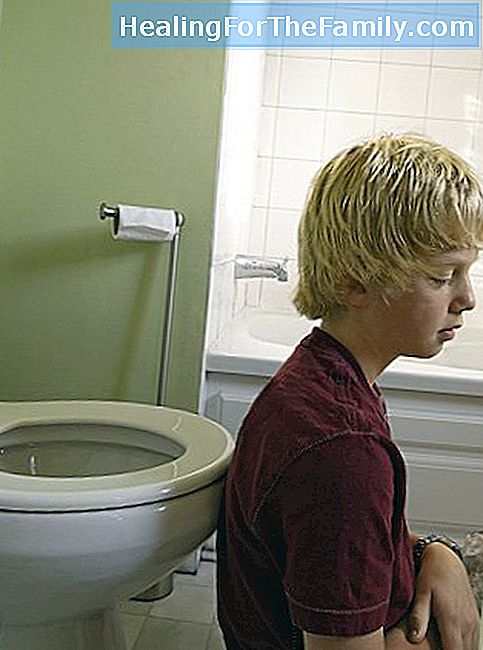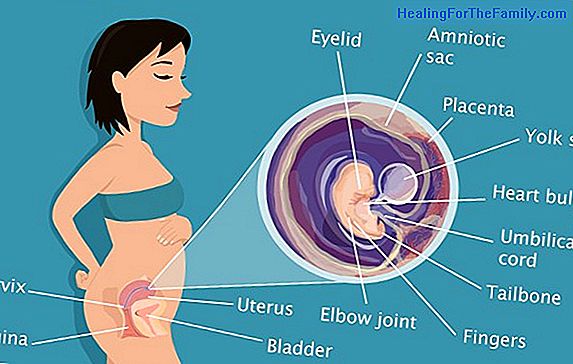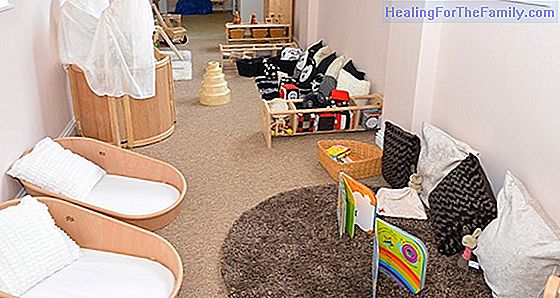Role of parents and physicians in regard to enuresis in children
The behavior of parents, as well as the position of physicians regarding infant enuresis, is of fundamental importance for the safety and confidence of children with enuresis. Without this support and trust it will be very difficult to overcome this problem. Parents, on the one hand, must arm themse
The behavior of parents, as well as the position of physicians regarding infant enuresis, is of fundamental importance for the safety and confidence of children with enuresis. Without this support and trust it will be very difficult to overcome this problem. Parents, on the one hand, must arm themselves with patience and understanding. Doctors, on the other hand, must transmit safety to children. And both must work side by side until the child manages to control their urination or urination.
The urologist Juan Carlos Ruiz de la Roja, in an exclusive interview with GuiaInfantil.com, reveals some tips.
Posture of the parents in the face of childhood enuresis

1-What physical and psychological consequences can derive from a child enuresis?
The consequences are tremendous and above all come from a psychological point of view. Obviously they are children who socialize much worse because they usually do not go to camps, do not go to friends' houses to sleep. In addition, they are children who sleep badly because they think they are going to urinate, they reveal themselves in a milder way and that causes the school performance to be much lower.
2-Should the child be punished for wetting the bed?
Never have to punish a child who urinates at night in bed, because if we are saying that 90 percent of the time comes from a physical cause, and that the child is not guilty of urinating, if we punish him , this will unfortunately be a double suffering, since the child can not control himself, it is a physical cause. If we punish him, what we are provoking is that the child has a psychological disorder and in the end ends up with fears and many times with problems that may have repercussions when he is an adult, from the psychological point of view.
3-Should parents reward children when they manage to progress in the treatment of enuresis?
Children who have enuresis should never be punished, but on the other hand they should be rewarded. If our child begins to move forward and we can start to remove the diaper because it does not urinate, these children have to be rewarded and given a positive stimulus. Within the enuresis we must always talk about positive and never negative stimuli, nor punishments, nor repress the child. That should never be done.
4-What would you say to parents who are ashamed to admit that their children wet the bed?
There are many parents who feel shame when they admit that their children wet the bed, but if we look back many times that shame happens because the parents themselves, the grandparents themselves, suffered the same when they were children. It is usually a very shameful topic and usually lived as a family. It is known that the problem disappears over time and that, being a family issue, many people are ashamed to recognize it, because at a certain time, even an adult can have their colors removed because they were asked if He also urinated himself and evidently answered that just like his son, when he was a child.

This situation makes us live within a taboo subject that is not discussed, which can cause children to go, unfortunately, to the doctor, because as the parents themselves suffered the problem and know that over the years and With the maturation of the bladder, the enuresis disappears, that makes many times they do not consult, they are ashamed to recognize the subject. Unfortunately we know that less than 20 percent of children who are more than five years old and wet their beds are seen by a specialist.
5- Could I be more specific about the treatment of enuresis and the medical part of the problem?
Within the enuresis the medical part represents 90 percent of the cases. You can see cases, for example, in which it has been discovered that children who are diabetic and who did not know have a problem of enuresis. In these situations you have to treat diabetes, so it is very important to do medical tests to reach a diagnosis. If the problem is that the child has an overproduction of nocturnal urine, usually the treatment is with a pill that is placed under the tongue and that causes a reduction in the amount of nocturnal urine to prevent escape. In the event that the child has a lower capacity bladder, it will also be necessary to do certain exercises and even the possibility of some medical treatment depending on the reason why the growth of the bladder is not adequate in that child.
6- What kind of medical tests are done to children with enuresis?
The medical tests we do in these consultations are very simple. Basically, they consist of a urinalysis, to find out if there is a problem in the urine that is justifying this child urinating in bed. Then another very simple test, an ultrasound, very important, not only to see the capacity of that bladder, but also if that child empties that bladder or if there is any alteration or malformation of the urinary system. That is why it is essential to do some basic tests to know exactly why our child urinates.












